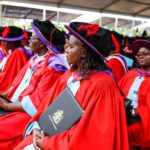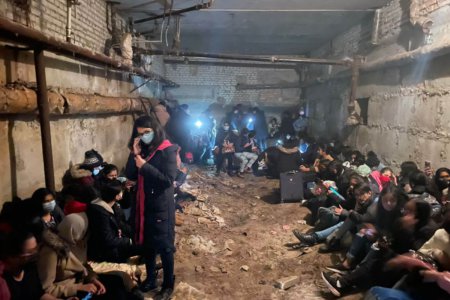
If you want to make a difference in people’s lives and innovate something that can change the world, become a medical professional. By obtaining a medical degree, you not only get to be a doctor, but you’ll also get to choose from a wide range of careers in healthcare. You can innovate through medical research, become a medical journalist, handle crises and emergencies as a public health worker, or become a licensed anaesthetist, to name a few. Armed with a medical degree, you can change people’s lives in countless ways.
Since the start of the COVID-19 pandemic, medical professionals are in need more than ever. The World Health Organisation (WHO) estimates a projected shortfall of 18 million health workers by 2030, mostly in low- and lower-middle-income countries. Without medical professionals, access to healthcare would be extremely limited and affect the physical and economic health of every person globally.
If you aspire to serve people and help them thrive, consider pursuing a medical degree at these universities:
Technion American Medical School

The student community is also an integral part of the medical school experience at TeAMS. Source: Technion American Medical School Facebook
At Technion American Medical School (TeAMS) in Haifa, Israel, students follow a proven formula for success: they study at a world-class institution, shadow top researchers and practitioners across a spectrum of specialities, and gain invaluable well-rounded experiences. This is the home to Israel’s first Nobel Prizes in the natural sciences in 2004, and the Nobel Prizes in Chemistry in 2011 and 2013. For aspiring medical students, this is where you can transform into tomorrow’s top physicians and experts in this dynamic setting.
TeAMS’s mission is to advance knowledge in life and medical sciences, improve healthcare, and train compassionate clinicians, researchers and teachers. It places professionalism at the centre of its teaching while fostering research abilities and scientific know-how. These help students have the background and the tools to continue their education in the medical profession and develop their clinical expertise and communication skills with peers, patients and families.
It’s where students become the best of the best. TeAMS’ unique American medical degree programme in English boasts an unparalleled focus on research, intimate class size, innovative teaching techniques, and a diverse student body. These develop students to become highly-sought after residents, allowing them to secure residency placements in the finest and most competitive residency programmes in Israel and beyond.The student community is also an integral part of the medical school experience at TeAMS. It’s a home away from home, with each student assigned a mentor to provide academic, social and general guidance as they transition to life at TeAMS. With dodgeball tournaments, variety shows, movie nights, running clubs, and other Technion-wide events, it’s not long before students make friends and memories for life. Click here to find out more about everything Technion American Medical School offers to chart your journey to success as a medical professional.
The University of Manchester: School of Medical Sciences

Graduates of the programme are frequently sought after by employers, with 100% of all final year students offered UK Foundation Programme posts in 2017. Source: University of Manchester
At this Russell Group University ranked number 50 in the world according to Times Higher Education, studying medicine means getting the best there is in clinical practice and research. Its School of Medical Sciences is the largest medical school in the UK, but has the smallest class size for a concentrated approach to hands-on clinical learning.
Led by Professor Tony Heagerty, the School has six divisions: Division of Cancer Sciences, Division of Cardiovascular Sciences, Division of Dentistry, Division of Developmental Biology and Medicine, Division of Diabetes, Endocrinology and Gastroenterology, and Division of Medical Education.
Four degrees are offered at the undergraduate level: MBChB Medicine, MBChB Medicine with foundation year, Intercalated courses for medical students, and BSc Public Health. The five-year MBChB Medicine programme has over 2,200 students who are set to be thoroughly prepared to work in current healthcare systems.
The programme integrates science and clinical learning together with practical lessons that include anatomy dissection. Students are exposed to clinical practice from Year One, which trains them to empathetically handle patient interaction on top of other demands in a real clinic.
The MBChB Medicine degree is accredited with the General Medical Council, which allows provisional registration for graduates to obtain a Foundation Year One post to begin their first steps towards full clinical practice.
Graduates of the programme are frequently sought after by employers, with 100% of all final year students offered UK Foundation Programme posts in 2017.
Karolinska Institutet

Karolinska Institutet is Sweden’s largest centre of medical academic research, offering the largest number of medical courses and programmes in the country. Source: Karolinska Institutet Facebook
An internationally-renowned university solely dedicated to medical and health sciences, Karolinska Institutet (KI) is located just north of Stockholm.
It is Sweden’s largest centre of medical academic research, offering the largest number of medical courses and programmes in the country. The Nobel laureates in Physiology or Medicine are selected here, and five of the university’s illustrious alumni have been awarded the prestigious prize for their contributions to medicine.
KI ranks consistently among the best universities worldwide in life sciences and medicine: it is ranked eighth in the world in Life Sciences and Medicine by the QS World University Rankings, and is part of the top 40 universities worldwide according to the Times Higher Education.
The university offers one bachelor’s programme and 10 global master’s programmes, all delivered in English. From epidemiology to a whole range of other research areas, KI students have an edge over others in the field with the university’s concentrated effort to integrate ethical sustainability into its curriculum.
Students are actively encouraged to develop their careers at the university, either as researchers or employees contributing to advancing the medical field.
“I am very interested in translational neuroscience research. Therefore, I was looking to learn in a research-intensive environment where I could grow as a biomedical researcher,” writes Alessandra Tamashiro Orrego, a Master’s in Biomedicine student. “Karolinska Institutet, a world-leading medical university where neuroscience labs are conducting fascinating studies, offered exactly that. So, here I am! And very happy with my decision!”
Masaryk University: Faculty of Medicine

Thanks to the brand-new Simulation Centre, Masaryk University currently offers the most up-to-date medical degree in the country. Source: Masaryk University
One of the most acclaimed universities in central Europe, Masaryk University is located in Brno, Czech Republic, a welcoming city known for its safety and student-friendly atmosphere. Little wonder over 7,000 international students currently chose it as their second home, out of which 900 medical students currently chose it as their second home.
Known for life science-related courses, the university’s Faculty of Medicine has gained an excellent global reputation for English-language degree programmes in General Medicine and Dentistry. Thanks to the brand-new Simulation Centre, Masaryk University currently offers the most up-to-date medical degree in the country.
A medical degree at Masaryk can take you many places — it is fully recognised in the European Union, the US, and several other countries worldwide. As an added bonus, the university also provides pre-exam support to students taking the US Medical Licensing Examination (USMLE).
Through attentive lectures and instructions, you also get to develop soft skills such as surgical teamwork, critical decision-making, crisis management and effective communication, alongside a complex understanding of medical knowledge.
Medical training at the brand-new Simulation Centre (SIMU) — one of the most advanced simulation facilities in Central Europe — thoroughly prepares you for real-life practice. Here, you can experience risk-free surgical procedures up-close and first-hand.
Standing at 8,000 square metres, SIMU houses over 1,000 simulators, two operating theatres, a delivery room, intensive care units, and rooms for teaching through 3D simulators. The building is equipped with lecture halls and classrooms, on top of the latest medical equipment and teaching models that replicate realistic environments to familiarise students with day-to-day work in a hospital setting.
*Some of the institutions featured in this article are commercial partners of Study International









